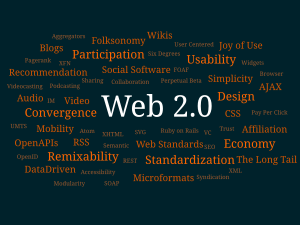After some serious time off, I am now back into blogging. And I promise to start using Twitter a bit more. My daughter went abroad for a year, I started work with a 600+ inbox and am already preparing 2 whitepapers and a round table on cloud computing in the public sector. We concluded the mid-year review of the team (we did good, thank you) and I read Rick Merrifield’s book “Re-Think”.
And…I dumped my HTC Touch Pro. Instead I bought a Nokia E72 (and I could not resist putting a nice picture of it on my blog).
You will probably understand why I moved away from Windows Mobile 6.x; It is an awkward and certainly not finger friendly operating environment. I already enhanced it with SPB Mobile Shell 3.5 (very nice by the way – I can recommend it to all Windows Mobile 6.x users), but after almost 2 years the phone and battery were seriously worn out.
I have thought about waiting for Windows Phone 7, but who knows when that will launch in my region? Signs are not good.
So I spend some time looking at other possibilities. After almost 2 years of experience, I feel that a touch screen keyboard does not do it for me, I wanted a real qwerty keyboard and not a slide out keyboard. The phone had to be reliable in business use and the software had to be either awesome or very reliable. Given the current situation with trolling on intellectual property (think Oracle and Java), I had some doubts on Symbian; but you might think that I am completly missing the point here.
I have chosen Nokia, and specifically the E72, because I expect it to fits my needs. The verdict after 1 week of usage:
- Battery life is great. Without Bluetooth I get about 60 hours of usage during the week, with Bluetooth it is about 48 hours – that is 6 times more than my HTC!
- Very clever connectivity intelligence, automatically switching between different WLAN’s and 3G depending on availability and priority settings.
- App store is providing the right apps and tools.
- Free (turn by turn) navigation for car and walking. Excellent GPS receiver with quick response.
- Intermittent success in syncing email, contact and calendar with Hotmail and the corporate Exchange environment. I have not yet figured out if I am doing something wrong or if it is really unreliable. Manual sync works flawlessly, automatic sync only when it feels up to it…
- Terrible menu-logic. Nokia tried to make it simple. It is not. period.
- Keyboard. I think I can get accustomed to it – very nice to have tactile feedback.
- Voice quality. Excellent.
- Mini USB connectivity – off course Nokia has a different type of mini USB connector so I could not use my HTC loader.
- Phone Quality – not a single dropped call yet.
Now I just need to stop trying to tap on the screen – it is not a touch phone….
Your thoughts?



![Reblog this post [with Zemanta]](https://i0.wp.com/img.zemanta.com/reblog_e.png?w=813)
